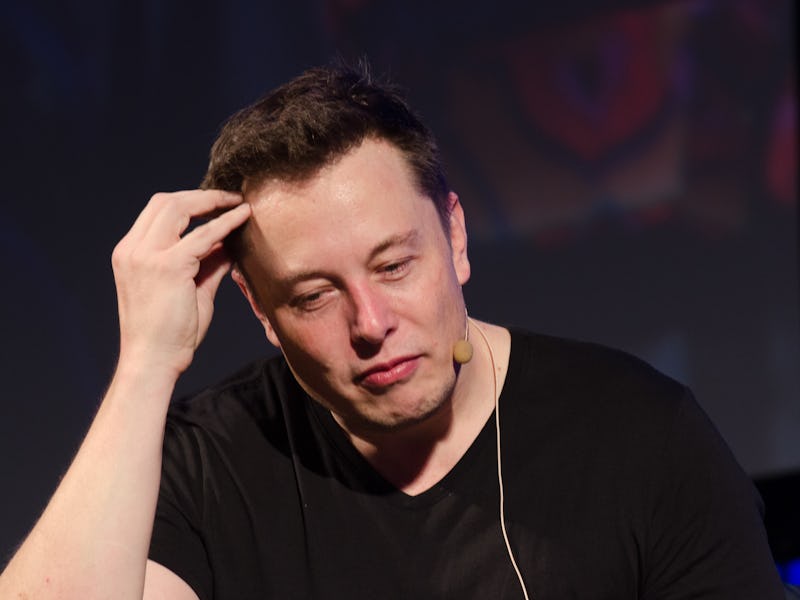Elon Musk: If You Question Autonomous Cars, "You're Killing People"

Elon Musk is so confident in Tesla’s autonomous driving hardware and software that he believes anyone who publicly questions their safety is basically “killing people.”
On Wednesday, Musk shared long-awaited details about the next generation of Tesla’s electric cars. Now, all cars will be rolled out of the factory, equipped with the requisite hardware to make them fully autonomous. This means Level 5 Autonomy — the top of the scale — such that humans are essentially irrelevant. That includes the still-in-production consumer version, the Model 3. After the brief announcement, he welcomed questions from reporters.
The first question out of the gate pitted Tesla against Volvo. The reporter asked Musk whether Tesla, like Volvo, would offer its car owners indemnity in the event of a full-autonomy crash. Musk did his best to remain calm; for a first question, it was pretty aggressive. “No, I think that would be up to the individual’s insurance,” he said. “If it’s something endemic to our design, certainly we would take responsibility for that.”
But then, after a brief pause, he let loose.
What really matters, at the end of the day here, is, What is the absolute safety level? One of the things I should mention that, frankly, has been quite disturbing to me, is the degree of media coverage of Autopilot crashes, which is basically almost none, relative to the paucity of media coverage of the 1.2 million people that die every year in manual crashes. It is something that I think does not reflect well upon the media. It really doesn’t. You need to think carefully about this, because if, in writing some article that’s negative, you effectively dissuade people from using an autonomous vehicle, you’re killing people.
He paused, then said: “Next question.”
Trust in the autonomy, or else.
Musk is not being altogether unreasonable. According to him, self-driving cars are already at least two times safer than human drivers on average. That superiority factor will only go up as time goes on, as the neural network takes in and processes more and more information. If a reporter manages to persuade someone that self-driving cars are unsafe, or unreliable, or what have you, then that person may develop a rigid opinion, a prejudice. If that person dies in a car accident later on, and would’ve avoided the crash or survived in an autonomous vehicle, the reporter is at fault. Even if the reporting was accurate at the time of publication, that person may not recoup trust or curiosity, which, given that these systems can only improve over time, puts that person at risk.
It’s not manslaughter, but, in Musk’s eyes, it could be reckless endangerment.